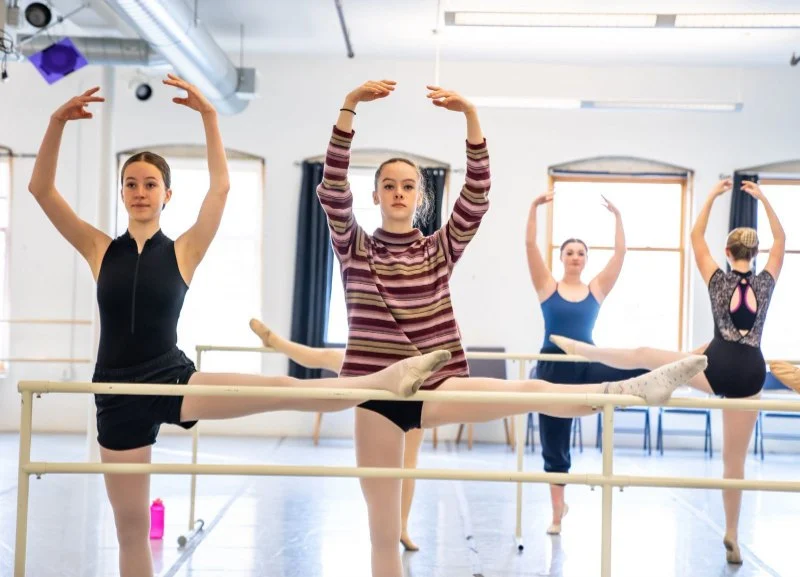
- What is a Dance School?
- What is a Dance Hall?
- Key Differences Between Dance Schools and Dance Halls
- Which One is Better for You: Dance School or Dance Hall?
- The Cultural Impact of Dance Schools
- Dance Halls in Popular Culture
What is a Dance School?
A dance school is an educational facility that provides structured dance training. These institutions are designed to teach students the fundamentals and advanced techniques of various dance styles. Dance schools offer classes in ballet, jazz, hip-hop, contemporary, tap, and even ballroom, depending on their focus.
At a dance school, students typically follow a curriculum designed to develop their skills progressively, from beginner to advanced levels. Teachers in dance schools are usually highly trained professionals who specialize in one or more dance styles and are often experienced in both performance and teaching.
1. Dance Training and Classes
Dance schools offer formal dance training, which often includes both technique and performance. The lessons are structured, with a focus on improving the student’s physical ability, musicality, and artistic expression. Students are usually assessed on their progress and may participate in annual recitals or performances to showcase their development.
2. Long-Term Commitment
Dance schools tend to involve a long-term commitment from both the students and the parents. Students may take part in regular lessons, attend summer intensives, and participate in examinations to advance to higher levels. The training is comprehensive, with a focus on mastery of techniques over time.
What is a Dance Hall?
A dance hall, on the other hand, is a venue where people gather to dance for social enjoyment rather than for formal training. Dance halls are typically used for social events, parties, and community gatherings. They can host dance events such as swing dances, salsa nights, or country-western hoedowns, providing a space for people of all skill levels to enjoy dancing.
Unlike dance schools, which are educational and focused on technique, dance halls are designed for social interaction and entertainment. They often feature live music or DJs and may cater to a particular style of dance depending on the event, such as a ballroom dance or a more casual club-style gathering.
1. Social and Recreational Focus
Dance halls are typically informal spaces where people go to have fun. They are not focused on teaching dance technique or providing professional training but instead create an atmosphere for enjoyment and social engagement. Some dance halls even offer casual group dance lessons before events begin to help beginners feel more confident on the dance floor.
2. Dance as Entertainment
In a dance hall, dancing is primarily for fun, entertainment, and relaxation. People of all ages and skill levels gather to dance, enjoy music, and socialize with others. These venues may not have a structured curriculum like a dance school but provide a space where the community can gather to celebrate dance in a more relaxed, less formal setting.
Key Differences Between Dance Schools and Dance Halls
While both dance schools and dance halls are places where dancing takes place, they serve very different purposes and cater to distinct needs:
1. Purpose and Function
The main difference between a dance school and a dance hall is their purpose. Dance schools are educational institutions that focus on teaching and developing dance techniques. Dance halls, however, are venues primarily for social dancing and entertainment. A dance school is where you learn, and a dance hall is where you go to enjoy dancing with others.
2. Structure and Formality
Dance schools have structured curriculums, professional instructors, and assessments, whereas dance halls are informal venues with little to no instruction involved. In a dance school, the goal is progression and mastery, while in a dance hall, the goal is entertainment and socializing.
3. Audience and Participants
At a dance school, the participants are typically students who are serious about learning dance. These individuals are committed to their craft and may eventually pursue professional careers. In contrast, dance halls cater to a wide range of people, including those who may not have any formal dance training but enjoy dancing for leisure.
Which One is Better for You: Dance School or Dance Hall?
Choosing between a dance school and a dance hall depends on your goals and what you are looking to achieve with dance:
1. If You Want to Learn Dance Seriously
If you are interested in developing your dance skills and potentially pursuing a career in dance, a dance school is the ideal place. Dance schools offer professional training, advanced techniques, and opportunities to perform and compete. Whether you're starting with beginner classes or looking to refine your skills, a dance school provides the structure and resources needed for serious training.
2. If You Just Want to Have Fun
If you’re looking to enjoy a fun night out and dance for social purposes, a dance hall is the perfect setting. With its informal atmosphere and focus on fun and socializing, a dance hall allows you to dance without the pressure of formal instruction. Whether you’re new to dancing or an experienced dancer, a dance hall provides a great way to unwind and meet people.
Dance Schools and Their Cultural Impact
Dance schools have had a profound impact on society by preserving and promoting different forms of dance. Through training, they help develop professional dancers and choreographers who contribute to the broader cultural landscape. Dance schools also serve as cultural hubs where traditions are passed down, and new forms of dance are created and popularized.
For example, classical ballet schools continue to nurture young dancers who go on to perform at prestigious ballet companies, while contemporary dance schools train performers who shape the modern dance world. These schools also act as community centers for aspiring dancers, where they can express themselves and explore their creativity.
Dance Halls in Popular Culture
Dance halls, on the other hand, have been depicted as vibrant, lively spaces in many aspects of popular culture. They represent freedom, joy, and expression. Movies, music videos, and even historical events have often highlighted dance halls as symbols of cultural gathering. From the swing dances of the 1940s to the salsa nights of today, dance halls continue to be integral to social life and entertainment in many communities.
At American Dance Academy, we understand the importance of both dance schools and dance halls in fostering a love for dance. Whether you’re looking for professional dance training or a place to enjoy social dancing, we offer resources and recommendations to help you get started. Visit us for more information on the best dance classes and events!
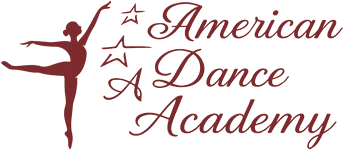
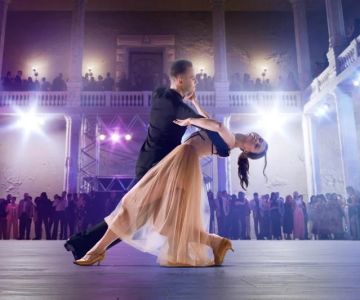
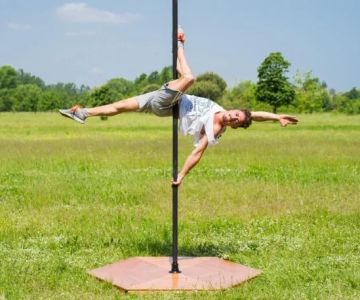
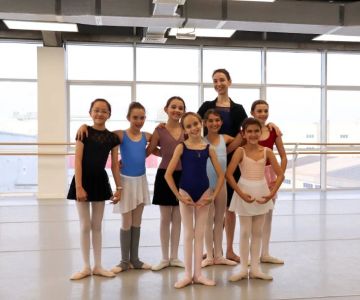
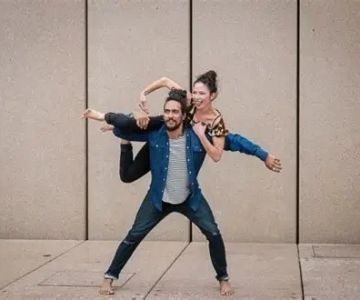
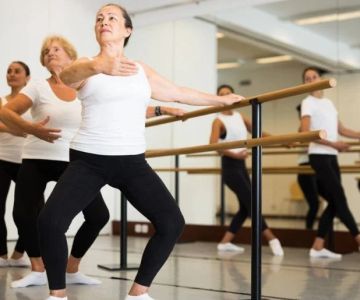
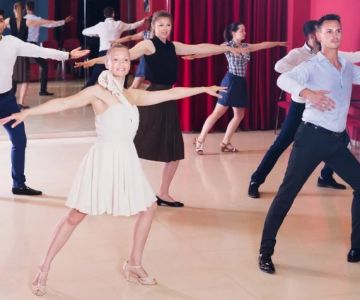
 Barrington Dance Academy5.0 (22 reviews)
Barrington Dance Academy5.0 (22 reviews)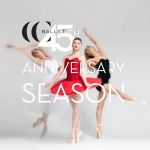 Canyon Concert Ballet4.0 (17 reviews)
Canyon Concert Ballet4.0 (17 reviews) Big City Dance Center LLC4.0 (25 reviews)
Big City Dance Center LLC4.0 (25 reviews)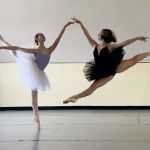 Tye Chua Dance & Kalamazoo Ballet5.0 (18 reviews)
Tye Chua Dance & Kalamazoo Ballet5.0 (18 reviews)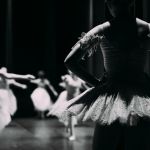 Fenton Ballet Theatre4.0 (24 reviews)
Fenton Ballet Theatre4.0 (24 reviews) Front Street Dance Center5.0 (7 reviews)
Front Street Dance Center5.0 (7 reviews) Are There Dances in Middle School? What Students and Parents Should Know
Are There Dances in Middle School? What Students and Parents Should Know How a Dance School in Instagram Builds Community and Success
How a Dance School in Instagram Builds Community and Success Why Do Schools Teach Square Dancing?
Why Do Schools Teach Square Dancing?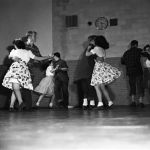 Why Was Square Dancing Taught in School?
Why Was Square Dancing Taught in School? Why Swing Dance Is Popular for Adults
Why Swing Dance Is Popular for Adults A School Dance: How to Prepare, Shine, and Make It Unforgettable
A School Dance: How to Prepare, Shine, and Make It Unforgettable